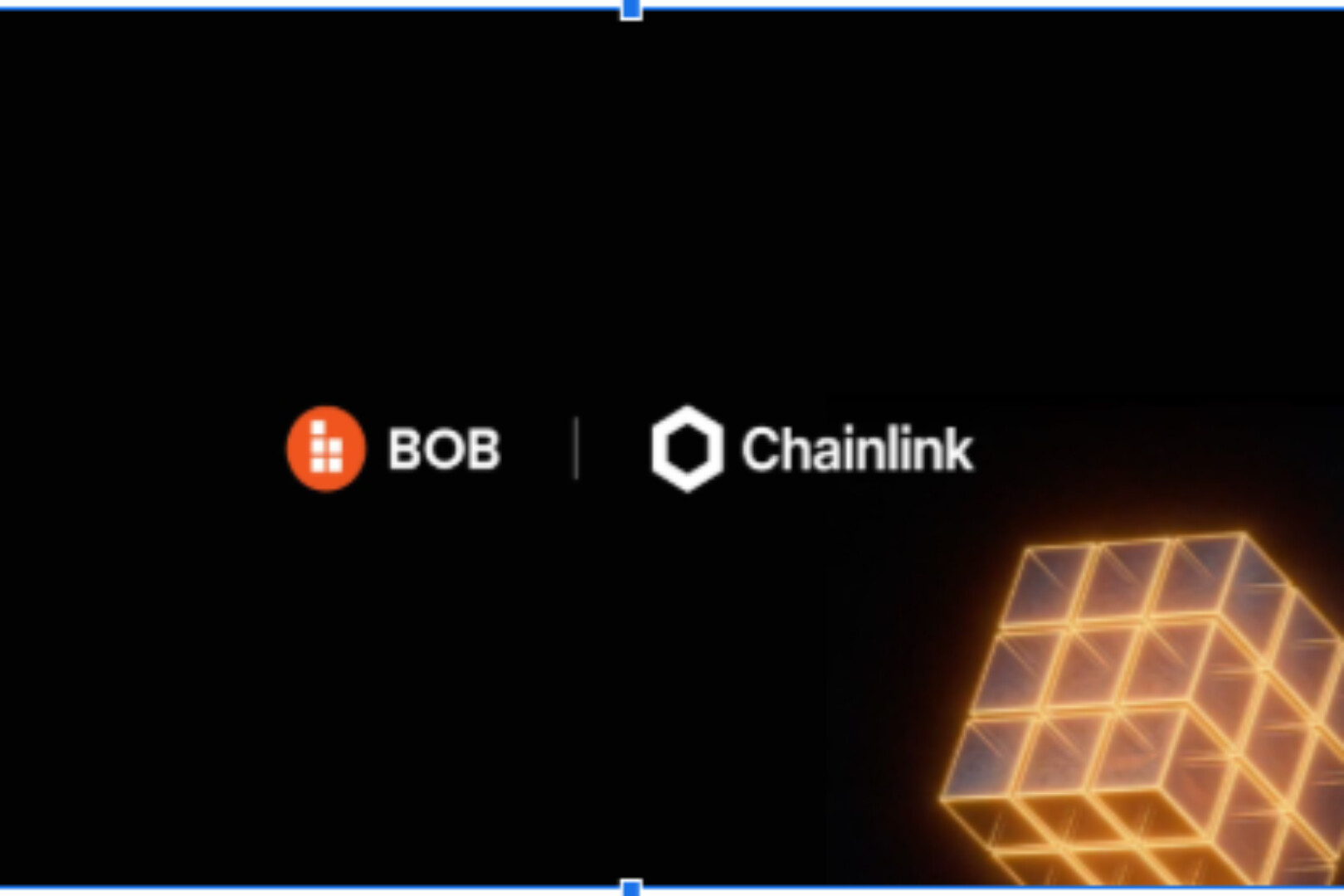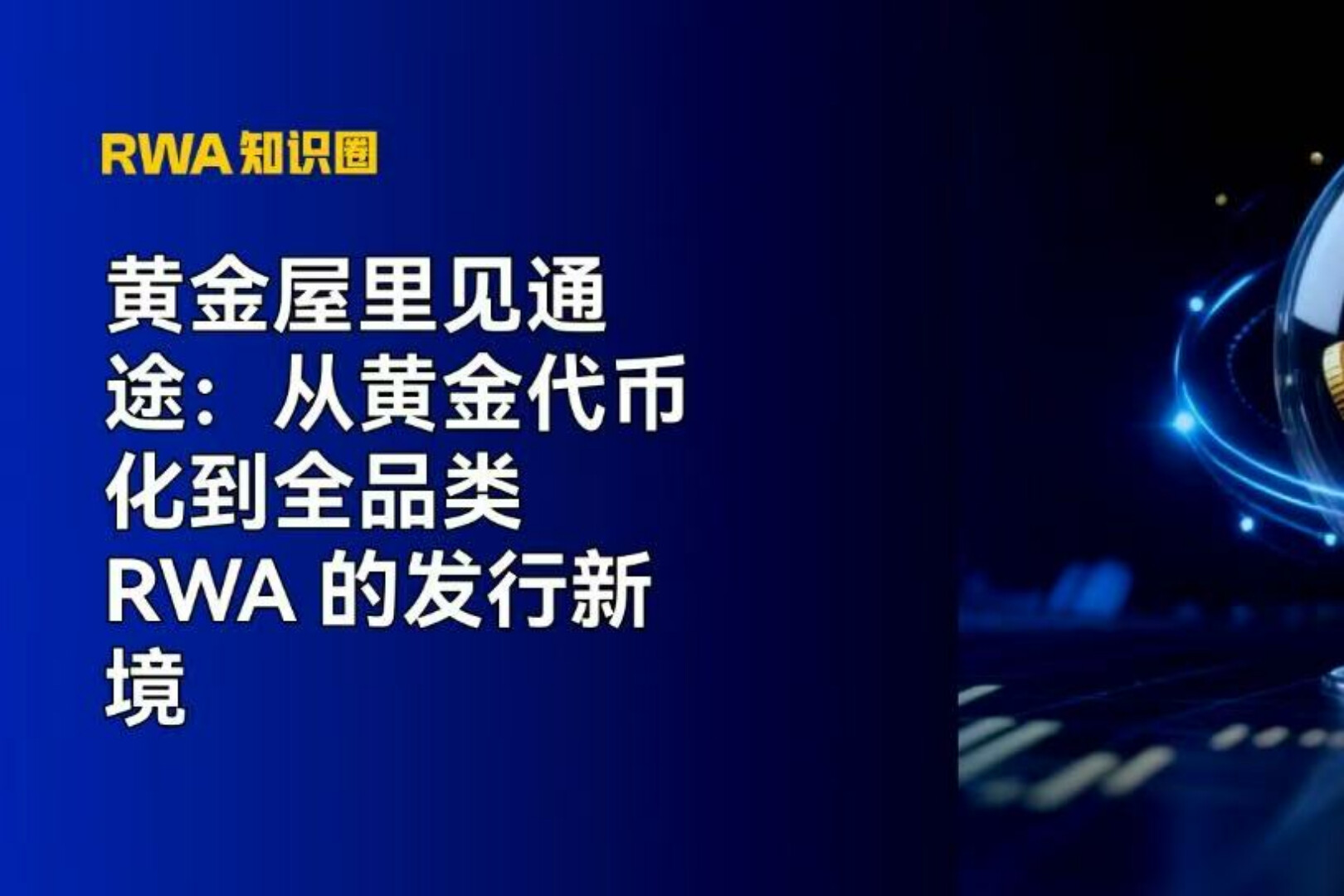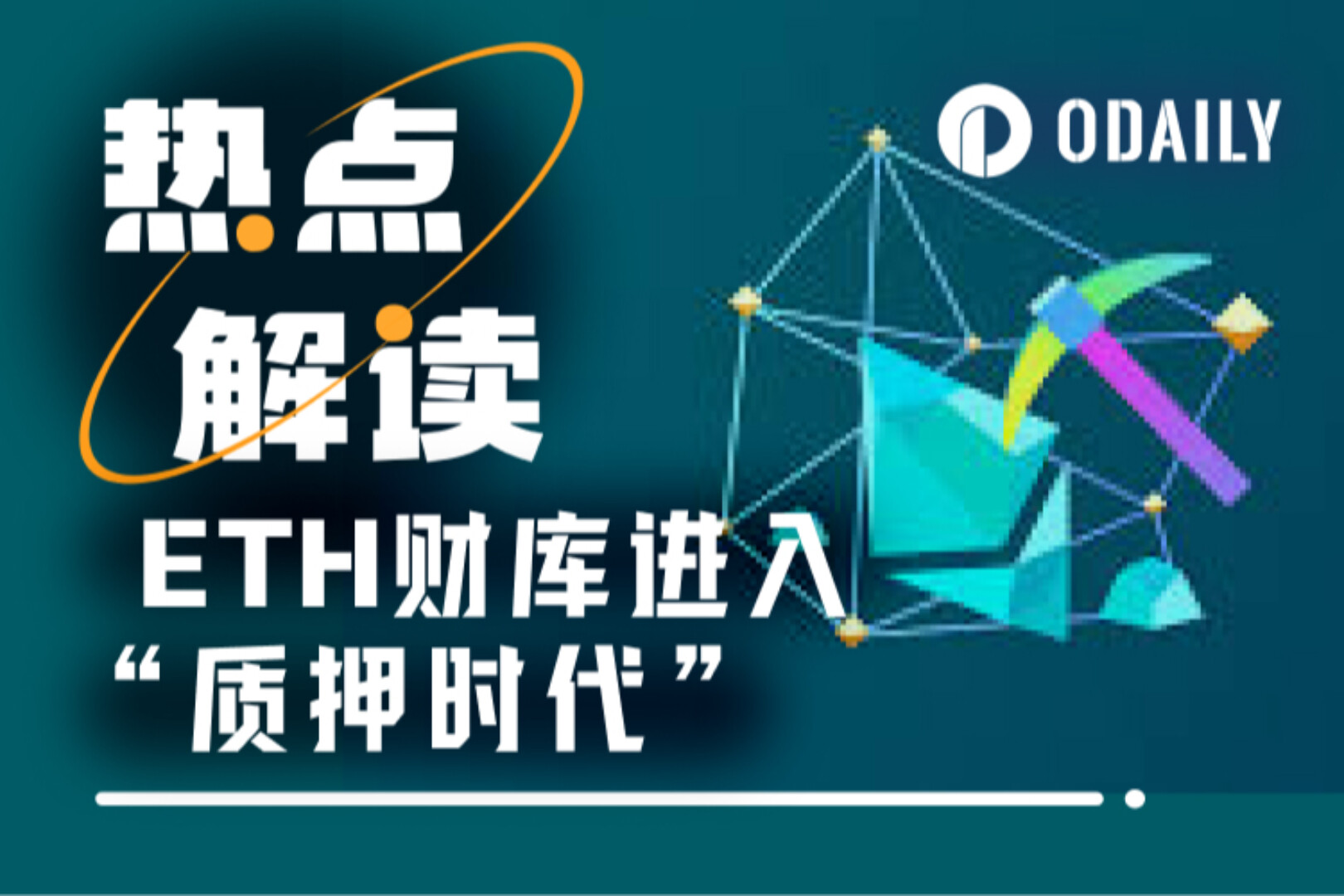Original author: Foresight X
During the recently concluded EthCC, Foresight X, a blockchain incubator under Foresight Ventures, co-hosted the second edition of the OpenBuild hacker house event with Generative Ventures. The event had the theme of "Empowering a Trustless Future". We received over 200+ applications and ultimately admitted 11 outstanding developers. Among them, 4 teams that the members belong to were nominated as EthGlobal Finalists, 3 members won first and second prizes in the LambdaZkWeek Hackathon, and other members also received multiple bounty rewards. (The winning project information will be detailed later in the text)
1. Open learning and exploration journey
Foresight Ventures has invested in zero-knowledge proof projects such as Polyhedra, Hyper Oracle, Veridise, Accseal, and OlaVM. The OpenBuild Hacker House @ EthCC, co-hosted by Foresight X and Generative Ventures with the theme of "Empowering a Trustless Future", continues to explore the forefront of ZK, ZKML, and other related technologies. We also actively participated in the zkDay event hosted by Cointelegraph and Manta Network.
During EthCC, we provide a collaborative development space for developers to deeply discuss cutting-edge zk-related technologies. The projects of OpenBuild hacker house team have won multiple awards in EthGlobal Hackathon and LambdaZkWeek Hackathon, showcasing innovative applications of zk technology in countering deep fakes and intent-based infrastructure, as well as in the AIGC NFT field.
II. Brainstorming in the Workshop
The OpenBuild hacker house @ EthCC workshop covered all the stacks of trustless building, aiming to facilitate meaningful discussions and inspire developers at OpenBuild hacker house and EthCC attendees. The workshop covered various topics, including decentralized storage (EthStorage), ZKVM (ZKWASM, OlaVM ZK-ZKVM), middleware (Hyper Oracle, Herodotus), ZKML (Modulus Labs, EF PSE), and deployable ZKEVM (Taiko), among others. Throughout this process, valuable insights emerged:
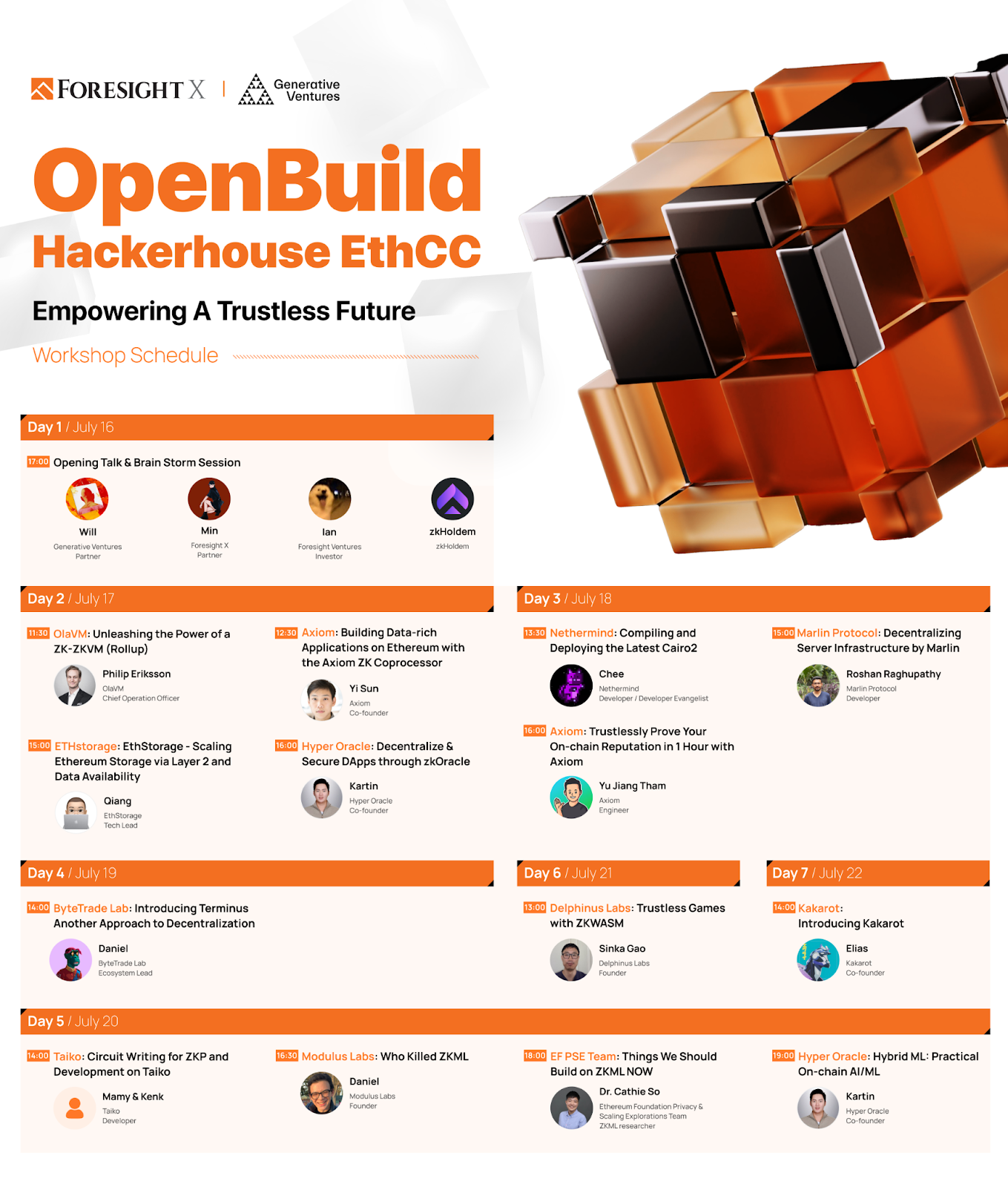
OpenBuild Hacker House @ EthCC workshop
What to build on Hybrid ML NOW by EF PSE
In contrast to the privacy features that are difficult to implement or have unclear requirements in ZK, verifiable AI is a more practical and feasible direction. ZKML developers are encouraged to consider trying three directions: (1) ZKML AIGC NFTs: using ERC7007 and smart contracts to trigger prompts, ML models generate AIGC-related files, and ZKML provers verify and generate proofs for creating new types of NFTs. (2) Recursive Neural Networks (RNN): ZK RNN can be used to develop price predictions, trading bots, large language models, etc. (3) Fun applications: Develop ZK-friendly models and games like Zordle, Leela vs the World for specific use cases.
Hybrid ML Practical On-chain AI/ML, by Hyper Oracle
Hyper Oracle supports on-chain data platforms and has already supported new projects like ZKAMM. However, it is not enough for intensive calculations like on-chain deployment of large-scale AI models. The project proposes Hybrid ML, which utilizes zero-knowledge proof compression in opML to reduce fraud proof cycles and gas consumption during on-chain deployment. This allows for the on-chain deployment of super-large AI models and the development of related applications.
Who killed ZKML? by Modulus Labs
The current ZKML is still very early, and there are currently only 10 related projects... Why is that? It is mainly due to cost constraints, being too early, and the inherent difficulty of the matter. Modulus Labs aims to reduce costs by 90% or even 100% by designing a specialized ZK for the AI field. But looking back, what is the ultimate goal of pursuing extreme performance? We may have completely different UX and a completely new project form.
Unleash the power of ZK-ZKVM by OlaVM
Ola proposes the vision of ZK-ZKVM, the first programmable privacy platform based on ZKVM. It can easily extend the functionality of platforms that lack privacy and high-performance characteristics while inheriting their network security, and it aims to bring controllable optional privacy to the largest ecosystem of blockchain public chains, Ethereum, and the entire Web 3 ecosystem.
This time, we have observed that there are many hackers with a dual background in ZK and ML, and they are eager to develop projects in the ZMKL field during hackathons. Therefore, at the zkDay event, Maggie, the CTO of Foresight Ventures, presented research and analysis on the frontier of the ZK field, focusing on proof recursion. The main content includes:
Introduced why proof recursion is necessary. When we need to use Zero-Knowledge Proofs (ZKP) to prove a large and complex program, and when we expect a small proof, we need to use three important methods: proof composition, proof aggregation, and proof recursion.
Introduced how proof recursion can be used to achieve incrementally verifiable computation (IVC), which can be used to prove long programs. The program to be proved can be divided into multiple steps and recursively proven, resulting in a small ZKP. This method not only reduces the memory requirements of the prover but also proves that the entire execution history is correct based on this small ZKP.
Introduction to the technological development history of IVC. And focus on introducing the recently highly regarded and very promising folding-based IVC. This folding-based IVC has the least recursive burden and is the most efficient compared to the previous two types of IVC.
Introduce multiple important folding-based IVC methods, including Nova, SuperNova, Sangria, HyperNova, Protostar. It is proven that recursion is almost the only way to prove the large program using ZKP. We believe that folding-based IVC will be widely used in the industry.
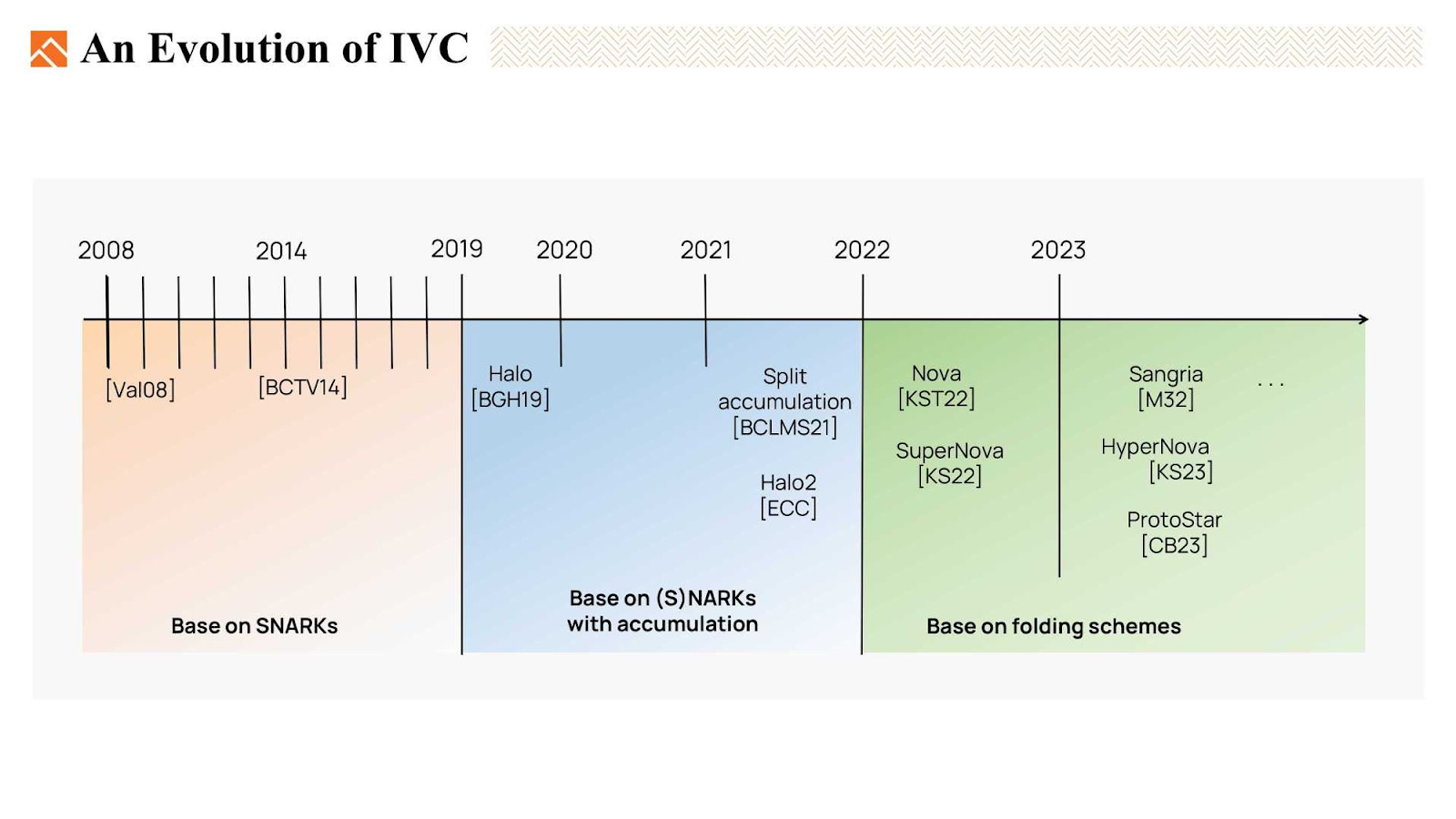
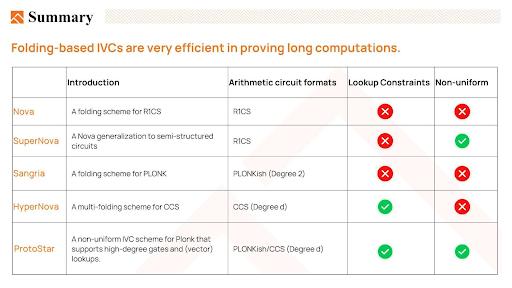
On Proof Recursion, Maggie from Foresight Ventures
The future of trustlessness represented by zero-knowledge proofs, especially the combination of blockchain and AI, is a technology direction that has always been followed and invested by Foresight Ventures. In the past, articles such as "What Exactly is Fiery ZKML," "️Best Attempt at a Decentralized AI Marketplace," and "On Proof Recursion" have been published. We will continue to publish related research and welcome contact and communication.
3. OpenBuild Hacker House @ EthCC Project Introduction and Review
1. ZK Microphone (Winner of Filecoin—Runner Up, EAS—Best Use and ETHGlobal Paris 2023 Finalist)
ZK Microphone aims to create a reliable audio verification service in the era of rampant deepfakes by utilizing ZK-SNARKs. The use of generative AI and deepfake audio poses significant risks to our societal security. In order to suppress the spread of this problem, ZK Microphone has built a full-stack solution – an audio verification service utilizing ZK-SNARKs.
The basic working principle of ZK Microphone is to store secret keys for digital signatures in a secure enclave to ensure the authenticity of recorded audio, confirming that the audio is indeed recorded from the specified hardware microphone. At the same time, ZK Microphone also utilizes audio editing software driven by ZK-SNARKs to transform the original audio, ensuring the privacy of the original audio content while maintaining the verifiability of the digital signatures.
Award page: https://ethglobal.com/showcase/zk-microphone-8161v
Foresight Ventures Review: ZK Microphone can ensure that the audio is authentically recorded from a specific hardware device. The team has considered comprehensively, taking into account the need for editing recordings. They are able to edit audio while preserving digital signatures and privacy. The use of ZK proofs to combat false information is a valuable initiative.
2. Bob the Solver (winner of 1 inch - Best use of 1 inch Contracts and ETHGlobal Paris 2023 Finalist)
Bob the Solver aims to integrate as an "intent"-based transaction infrastructure into wallets and decentralized applications. This project originates from the emerging paradigm shift in the field of account abstraction, where the core focus is not on the precise transaction flow, but on the user's ultimate "intent".
"Intent" represents the desired outcome, while "transaction" outlines the exact steps required to execute the transaction. For example, a user intends to purchase an NFT on the Polygon network, the "intent" is simple, but the precise transaction may involve tasks such as currency exchange, cross-chain transfers, and purchasing, all of which are complex and time-consuming, requiring a deep understanding of various blockchain knowledge.
Bob the Solver recognizes that users often only have the "intent" and do not have specific "transaction" details. This project aims to simplify the transaction process. It accepts the user's "intent", automatically formulates appropriate transactions, and executes them on behalf of the user.
Award page: https://ethglobal.com/showcase/bob-the-solver-yxtgp
Foresight Ventures Review: Bob the Solver is a great tool for lowering the barrier to entry for Web 3, allowing Web 2 users without in-depth knowledge of blockchain to quickly get started with Web 3. Users only need to describe their intentions, and Bob the Solver will generate transactions for them, eliminating the complexity of building transactions. It also uses an AA wallet to manage users' gas fees, further facilitating their quick start.
3. Starksplitter (winner of Starknet — Best Use)
Starksplitter implements OpenZeppelin's payment splitting contract in Cairo. This contract allows the payment of ERC20 tokens to be split among a group of accounts according to weights. The sender does not need to know that the ERC20 tokens will be split in this way, as the contract handles it transparently.
Award page: https://ethglobal.com/showcase/starksplitter-2m5j2
Foresight Ventures Review: Payment splitting contracts are used to pay a specific group, and Starknet needs implementations of these common contracts.
4. ZenetikNFT (winner of the Metamask — Best Use, Worldcoin — Pool Prize, and The Graph — Pool Prize)
ZenetikNFT "breeds" new NFT images using genetic AI. It uses EZKL to generate proofs and ERC7007 to supervise the minting process of each NFT. This process is reinforced by ZKML proof verification, ensuring that selected image features can be passed on to the next generation of NFTs. Additionally, ZenetikNFT will adopt the Worldcoin ID login method, which is verified on-chain to ensure that only real humans can own and "breed" these NFTs.
Award page: https://ethglobal.com/showcase/zenetiknft-1ph5r
Foresight Ventures Review: ZenetikNFT is an interesting and cutting-edge project. It uses genetic AI to breed new NFTs. Technically, it verifies the ownership of AIGC-NFT and ensures the correct execution of the minting process through the use of EZKL tools, ERC 7007, and ZKML. ZKML is a rapidly developing research field that brings verifiable AI to the blockchain, making it a very promising technology.
5. Photon (1st prize winner of LambdaZkWeek hackathon)
Photon uses Celestia as the DA layer for zkapps to address the lack of security and reliance on centralized servers in existing off-chain storage solutions for the Mina Protocol.
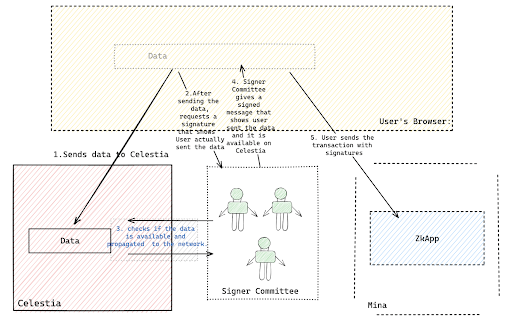
Github: https://github.com/photon-bridge/overview
Foresight Ventures Review: Photon is a special bridge that supports the use of zkDapp on the Mina blockchain with Celestia as the off-chain data layer for storing complex algorithms and data. Compared to most existing off-chain storage solutions for Mina, Photon's use of Celestia as the DA layer offers higher activity and reliability, making the data of zkDapp more accessible and reliable. Photon is a promising project.
6. Delta Z (2nd prize winner of LambdaZkWeek hackathon)
Delta Z is the first Zero Knowledge Differential Privacy (ZKDP) protocol. This solution has deployed key algorithms from the differential privacy literature on Cairo-based smart contracts on StarkNet (goerli). This allows users to submit queries as usual, and the received results include verifiably correct noise that does not affect analysis.
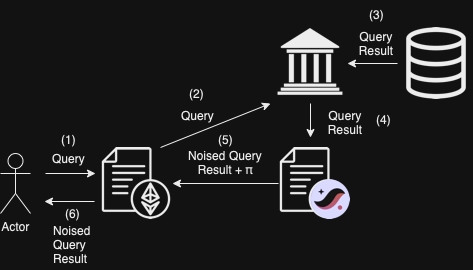
Github: https://github.com/manuj-mishra/zkdiffpriv
Foresight Ventures Review: Delta Z implements a verifiable method for privacy-preserving data queries, with potential use in some data-sharing applications. Delta Z uses Cairo contracts to implement key differential privacy algorithms, which is a data-sharing method that allows sharing some statistical features describing a database without revealing specific individual information.
IV. Foresight X Provides Ongoing Support for Developers
OpenBuild hacker house @ EthCC has come to an end, but BUIDL won't stop. As promoters of the Web 3 ecosystem, Foresight X is always committed to providing developers in the Web 3 space with the latest research insights, consulting guidance, ecosystem resources, and early-stage funding support of up to $200,000 to help them realize their vision and drive the entire crypto industry forward.
Hong Kong and Paris, stay tuned for our upcoming hacker house events. You can stay updated on our latest developments through various channels, including the Foresight X website, WeChat official account, Foresight News, Twitter, and other media platforms. Get ready for more exciting events to come! Looking forward to seeing you next time!
About Us
Foresight X is a Web 3 accelerator under Foresight Ventures, with three core components: project incubation, ecosystem funding, and research funds. It provides early-stage projects with support funding of approximately $200,000. In addition, Foresight X offers selected projects high-quality industry resources and global community support, including technical guidance, brand promotion, token economics, project operations, listing, company management, talent development, and legal regulations, among other acceleration services.
Foresight X is currently accepting online applications for the second phase of the Accelerator Program, focusing on AI + Web 3, ZK Machine Learning, Bitcoin ecosystem, LSD, NFT derivatives, PoS node services, DID, and all cutting-edge fields that embrace change and innovation.
